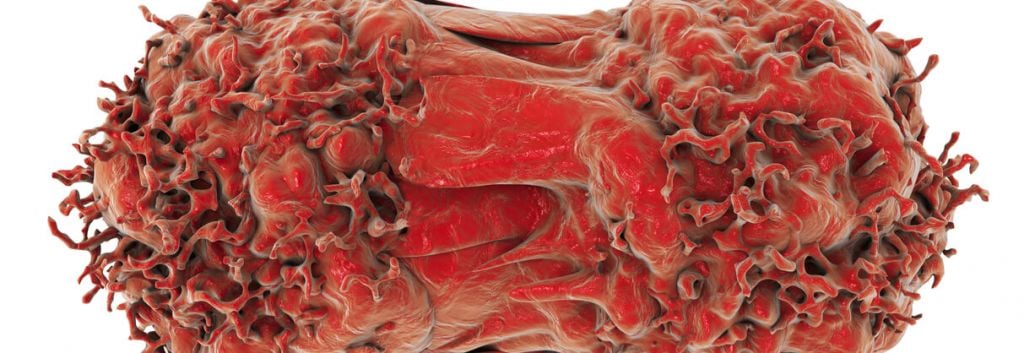Newsletter Signup - Under Article / In Page
"*" indicates required fields
No need to call the fire brigade! The University of Dresden’s cancer sensor spots a mutation to p53, the most important cancer gene, and kills the cell.
Researchers at the University of Dresden, Germany, have developed a molecular sensor that detects a mutation in tumor protein p53 – implicated in 50% of cancers – and kills the cell. The research, published in Nature Communications, found that the sensor can detect mutations in p53 and kill the cell before it undergoes the cancer transformation process. Although the technology is at a very early stage, it could offer additional levels of protection against the development of cancer-causing mutations.
Cancer remains one of the biggest causes of mortality, with 8.8 million deaths recorded in 2015. Cancers evolve through natural selection, as mutations accumulate in oncogenes and tumor-suppressor genes over time. Strikingly, British researchers have recently shown that it can take as few as 10 mutations to cause cancer. For this reason, having a system in place to spot potential damaging mutations and prevent their spread to daughter cells could be a great way to get ahead of cancer.
The molecular “smoke detector” monitors p53, making sure that the gene is functioning as it should – binding DNA to stimulate the expression of p21, which controls cell division. The group designed a genetic element that makes the cell reliant on normal p53 function, which, if interrupted, initiates cell death. The researchers believe that this should suppress tumor formation at a very early stage.

With the technology firmly in the preclinical stages, a lot of work remains to be done. However, Frank Buchholz, Project Leader at University Hospital Carl Gustav Carus, is hopeful the technology could have a big impact: “The p53 sensor enables an active precocious intervention for the first time. Our results show that cells with p53 mutations can be selectively detected and eliminated at an early stage. Hence, the transformation process is prevented.”
p53 has been known about for a while now, with researchers and biotechs around the world devising plans to bring it back under control. Aprea Therapeutics is developing a drug to restore normal p53 function, which is being tested in a Phase II trial, while Orca Therapeutics has developed p53-expressing oncolytic viruses that rapidly eradicate tumors. Elsewhere, AstraZeneca and the Babraham Institute have improved our understanding of another cancer-causing gene, PTEN, which is highly implicated in breast and prostate cancers.
Looking forward, it will be interesting to see how clinicians decide who receives the p53 sensor if it can be developed for the market and whether the technology can be adapted for other genes like PTEN.
Images – Kateryna Kon / shutterstock.com; Meletios Verras / shutterstock.com
Oncology R&D trends and breakthrough innovations







